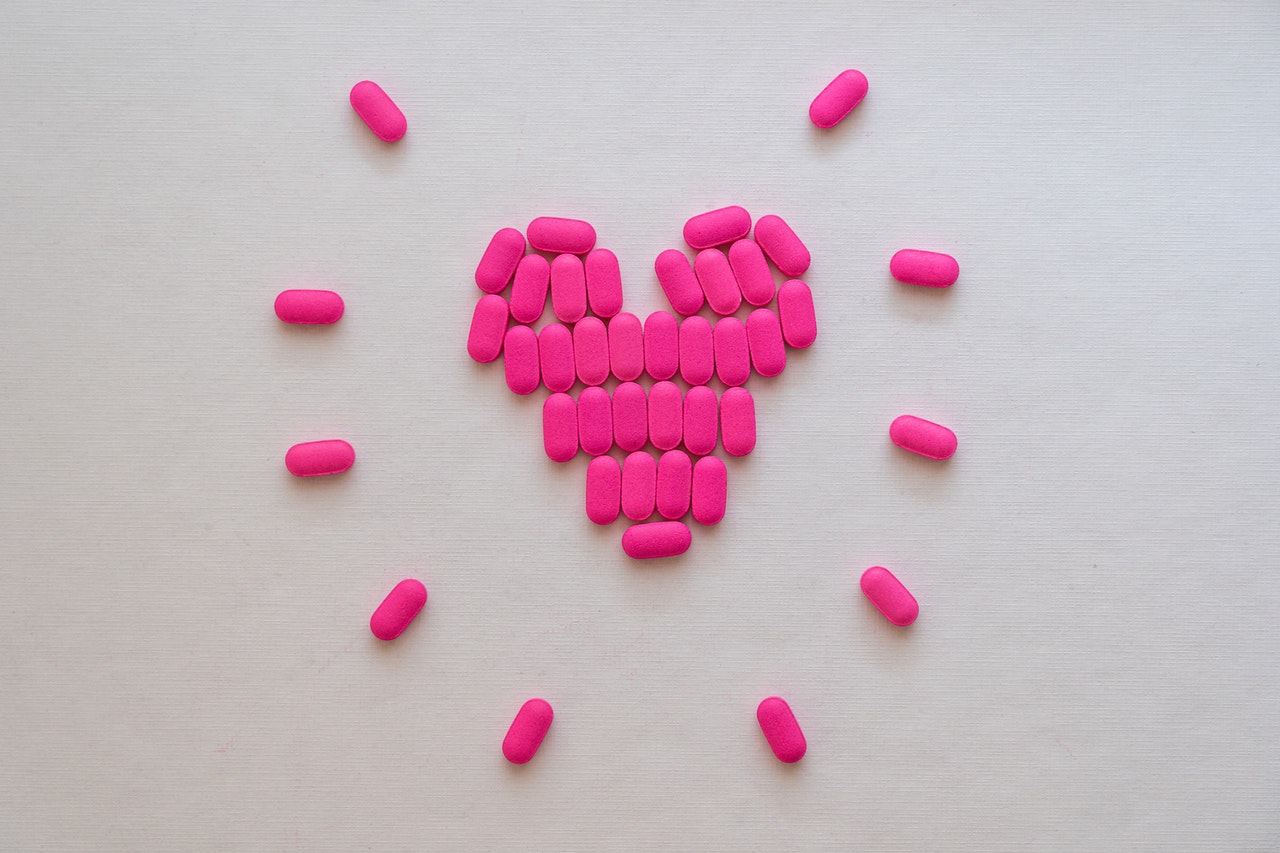Understanding Sildenafil: Can Women Use Female Viagra Safely?

Content by

Last Updated
Table of Contents
- Sexual Dysfunction in Women
- Female Sexual Dysfunction Symptoms
- Can Women Use Viagra?
- What Happens if a Woman Takes Viagra?
- Does Viagra Work on Women?
- Is There a Medicine Like Viagra for Women?
- Is Female Viagra Available in the UK?
- Are There Pills to Improve Low Sex Drive in Women?
- How Can I Improve My Sex Drive?
- The Bottom Line
It’s not only men that can have problems in the bedroom; women can too. The correct term for this is Female Sexual Dysfunction (FSD). Often downplayed, FSD can affect around one-third of young to middle-aged women, and around half of older women.
ED treatments such as Viagra have been used successfully by men around the world for many years. But does Viagra for women exist?
Sexual Dysfunction in Women
Many women may experience a temporary lack of interest in sexual activity following periods of significant stress or after major life changes, such as pregnancy or having a baby. This can often be seen as a normal part of adjusting to new life circumstances. However, if this disinterest persists and you notice that it is starting to negatively impact your relationships and well-being, it might be an indication of Female Sexual Dysfunction (FSD). FSD encompasses a variety of issues related to sex, including reduced libido, difficulties with sexual arousal, inability to achieve orgasm, and painful intercourse.
Aside from major life changes, FSD can also be triggered by medication, depression and can also be observed in premenopausal women. It's important for women experiencing any symptoms to consult healthcare providers to explore the underlying causes and appropriate treatments.
Female Sexual Dysfunction Symptoms
FSD encompasses a variety of symptoms. Common symptoms may include:
- A persistent lack of interest in sexual activity
- Difficulty in becoming aroused despite desire
- An inability to achieve orgasm despite sufficient stimulation
- Pain during intercourse
Symptoms may be consistent or occur intermittently. Factors contributing to FSD can be complex, often involving a combination of physical, psychological, and social elements. If you are experiencing any of these issues it's important to discuss them with your healthcare provider as they can offer guidance and potential treatment options tailored to your needs in addition to helping to determine the causes of your symptoms.
Can Women Use Viagra?
No, Viagra is not licensed for use by women in the UK. It is only licensed to treat erectile dysfunction in men. This means that women cannot take Viagra safely in the UK. Female Viagra is not proven to work and there have not been enough studies for us to know the long term effects on a woman’s body.
Low sex drive and sexual arousal in women are complex issues. If you're experiencing low sexual desire, you should see your GP. They may recommend a psychosexual specialist or other treatment that might help.
What Happens if a Woman Takes Viagra?
The long-term effects and safety of Viagra for women are not yet fully understood. What we do know is that the use of Viagra widens blood vessels and therefore has the potential to increase blood flow to the genitals. Whilst increased blood flow to the penis can stimulate an erection, there is no evidence to suggest that the effects of Viagra may improve sexual function in women.
In women who suffer from certain medical conditions or take certain medications, Viagra can cause serious side effects. For example, nitrates, a medication prescribed for high blood pressure and heart disease, has a fatal interaction with Viagra.
The increased blood flow around a woman’s body can cause common side effects such as:
- Headaches
- Feeling sick
- Hot flushes including facial flushing
- Indigestion
- Dizziness
However, contrary to this hypothesis, a study which involved women using sildenafil found no signs of adverse effects in females.
Does Viagra Work on Women?
Given that Viagra’s mechanism of action is to fill the penis with blood and cause an erection, it will not work for women. However, there is ongoing research investigating its potential effectiveness in treating women with sexual dysfunction.
Is There a Medicine Like Viagra for Women?
Presently, two products aimed at addressing female sexual dysfunction have been likened to Viagra: Flibanserin (marketed as Addyi) and Lady Era. Although both target FSD they work in different ways. Unfortunately, neither has undergone sufficient validation, and they remain unavailable for purchase in the UK.
About Flibanserin (Addyi)
Flibanserin, also known by the brand name Addyi, holds a license for treating FSD in the US, but it is not approved in the UK. Positioned as the "female Viagra," this pill targets women experiencing low sexual desire pre-menopause. Its mechanism involves rebalancing specific brain chemicals to increase sexual motivation. It works by elevating dopamine and norepinephrine while reducing serotonin levels linked to sexual inhibition.
About Lady Era
Lady Era uses sildenafil citrate, the active compound found in Viagra, to enhance genital blood flow and arousal in women. However, studies examining sildenafil's efficacy for FSD produced inconclusive results, contrasting with the positive feedback seen in men. Consequently, Lady Era is not sanctioned for medicinal use in the UK.
Natural Treatments
For those seeking alternative treatments, natural Viagra emerges as an option. Many opt for herbal or natural remedies such as L-arginine, Ginseng, Ginko, Maca, and Dehydroepiandrosterone (DHEA) to address FSD. Despite their popularity, scientific evidence supporting their efficacy lags, and there is further need for research and trials.
Is Female Viagra Available in the UK?
Neither Flibanserin nor Lady Era are licensed in the UK as they have not been sufficiently proven to work. It is therefore not possible to obtain these treatments legally in the UK.
The other treatments are hormone replacement therapy or off-license medication. These can only be prescribed by a doctor.
Are There Pills to Improve Low Sex Drive in Women?
Flibanserin (Addyi)
This medication is approved in the US to treat FSD in women before menopause. Used to treat low sex drive in women, it is often compared to Viagra, even though they work in different ways. Flibanserin works by targeting neurotransmitters in the brain to increase sexual desire.
Bremelanotide (Vyleesi)
Also approved in the US to treat FSD, bremelanotide is a peptide hormone that acts on melanocortin receptors in the brain, enhancing sexual desire.
Testosterone Therapy
In some cases, testosterone supplementation may be prescribed off-label to women with low sexual desire, particularly those who have undergone surgical menopause or have reduced testosterone levels due to other factors.
Off-label Use of Other Medications
Some antidepressants, such as bupropion, have been used off-label to address sexual dysfunction in women. Additionally, certain medications used to treat male erectile dysfunction, such as sildenafil (Viagra), have been studied for their potential benefits in women with sexual desire disorders.
Hormone Therapy
Hormonal imbalances, such as low estrogen levels, can contribute to sexual dysfunction. Hormone therapy, either in the form of estrogen therapy or combined estrogen-progestin therapy, may be recommended for women experiencing symptoms related to menopause, such as vaginal dryness or pain during intercourse, which can impact sexual desire and arousal
How Can I Improve My Sex Drive?
Women can take several steps to improve their sex drive. Here are some strategies you may wish to try:
Address Underlying Health Issues
Certain medical conditions, such as hormonal imbalances, thyroid disorders, depression, anxiety, and chronic illnesses, can affect libido. Seeking treatment for these conditions with the help of a healthcare provider may help improve sex drive.
Manage Stress
High levels of stress can negatively impact your interest in sex. Engaging in stress-reducing activities such as yoga, meditation, deep breathing exercises, or seeking therapy can help manage stress and improve sexual desire.
Prioritise Self-Care
Taking care of your physical and mental well-being is important for overall health and sexual function. Getting enough sleep, eating a balanced diet, exercising regularly, and practicing self-care activities can all contribute to feeling better physically and emotionally, which may enhance libido.
Try Arousal Techniques
Experimenting with different forms of stimulation, such as massage, sensual touch, or incorporating sex toys, can help enhance arousal and pleasure.
Invest in Intimacy
Building emotional intimacy and connection with your partner outside of the bedroom can strengthen your bond and increase desire. Engage in activities together, share quality time, and express affection regularly.
Consider Therapy
Individual or couples therapy with a qualified sex therapist can provide a safe space to explore sexual concerns, improve communication, and learn techniques to enhance intimacy and sexual satisfaction.
Evaluate Medications
Certain medications, including some antidepressants and contraceptive pills, can affect libido. If you suspect that medication is impacting your sex drive, discuss alternative options with your healthcare provider.
Explore Hormonal Therapy
For women experiencing menopausal symptoms impacting libido, hormone therapy may be an option. Discussing the risks and benefits with your doctor is essential.
Communicate With Your Partner
Open and honest communication about desires, preferences, and concerns can help strengthen intimacy and connection, which can positively impact sexual desire.
The Bottom Line
It's important to remember that sexual desire and arousal can vary greatly among individuals and may fluctuate over time. What works for one person may not work for another, so it's essential to explore different strategies and approaches to find what works best for you. Additionally, seeking support from healthcare professionals or counsellors can provide personalised guidance and support in addressing sexual concerns.
Whilst all of our content is written and reviewed by healthcare professionals, it is not intended to be substituted for or used as medical advice. If you have any questions or concerns about your health, please speak to your doctor.
